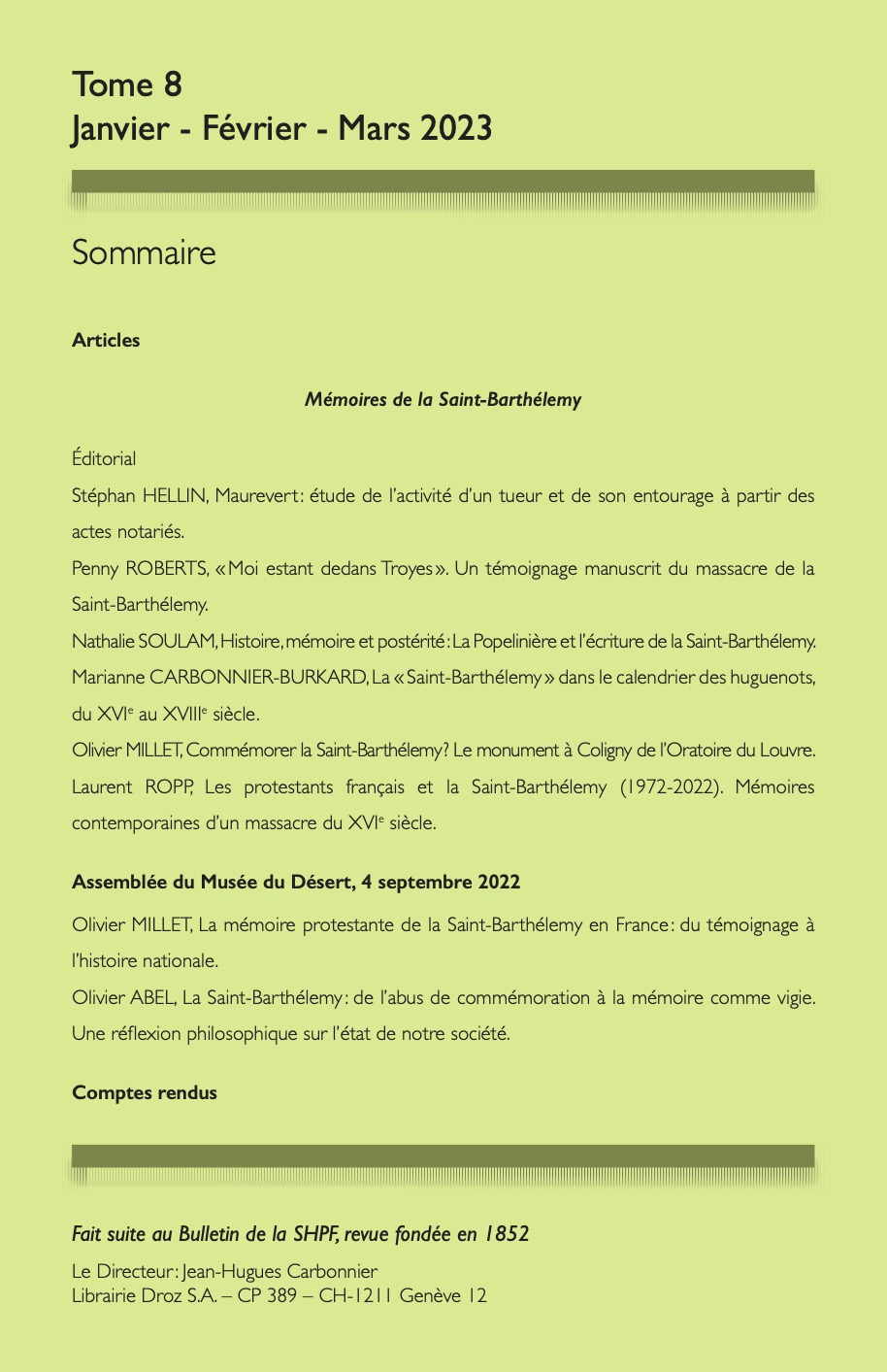La Saint-Barthélemy : de l’abus de commémoration à la mémoire comme vigie
Une réflexion philosophique sur l’état de notre société
Abstract
In this “philosophical reflection on the state of our society”, Oliver Abel begins by drawing attention to today’s “commemorative disease”, the excess and abuse of commemorations, as exemplified for instance by the important societal place occupied by museums, understood as places of summary and of the end of history within an international tourism. He also describes a society in which one is at the same time required to move fast, to shed ballast, to dump loyalties, to not allow oneself to be slowed down or hindered by traditions or heritages judged too heavy. Drawing on the work of Ricœur, Nietzsche, and Kundera, he attempts to discern the good use of both memory (to resist a presentist amnesia) and forgetfulness (to thwart a resentment that throws us into an infernal repetition of the past), and then argues that the commemoration of the St. Bartholomew’s Day Massacre ought to serve as a watchtower—amnesty is, after all, not amnesia. What happened long ago, with a terrible desire to recover the unity of the mystical body in France, could well happen today, with a self-styled return to a misguided “secularism” that endorses the identity function of sixteenth-century fanatic Catholicism. It is up to us, together, to see to it that the St. Bartholomew’s Day Massacre really has reached its end.

